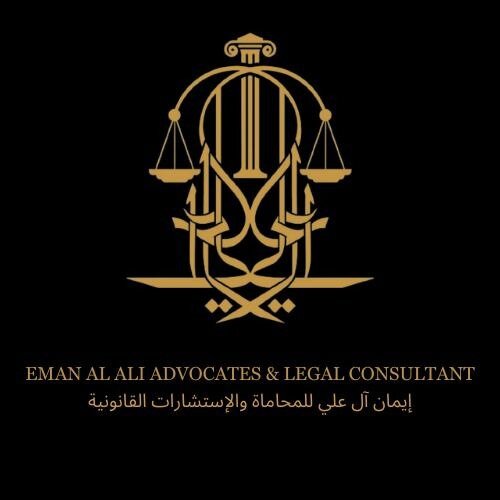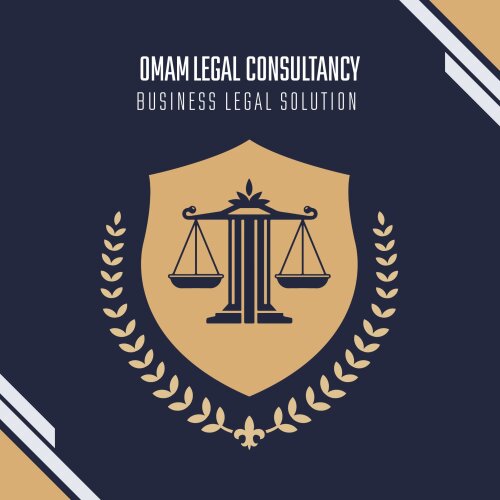Best Business Registration Lawyers in United Arab Emirates
Share your needs with us, get contacted by law firms.
Free. Takes 2 min.
Or refine your search by selecting a city:
List of the best lawyers in United Arab Emirates
About Business Registration Law in United Arab Emirates
The United Arab Emirates (UAE) offers a dynamic environment for business development, with regulations that cater to both local and international entrepreneurs. Business registration in the UAE involves several legal procedures and requirements. The country's legal framework is divided into Mainland, Free Zones, and Offshore jurisdictions, each with its own set of regulations. The UAE offers a business-friendly ecosystem with tax incentives and minimal restrictions on profit repatriation, which continues to attract global investors.
Why You May Need a Lawyer
Navigating the business registration process in the UAE can be complex, especially for foreigners unfamiliar with the local laws and procedures. Here are some common scenarios where legal assistance might be beneficial:
- Understanding the difference between Mainland, Free Zone, and Offshore companies.
- Assistance with drafting and reviewing legal documents and agreements.
- Guidance on compliance with UAE and local Emirate laws.
- Facilitating approvals and clearances from various regulatory authorities.
- Advising on intellectual property protection and other legal safeguards.
Local Laws Overview
Key aspects of UAE laws relevant to business registration include:
- Mainland Companies: Require a local sponsor and adhere to UAE Commercial Companies Law, allowing business operations throughout the UAE.
- Free Zone Entities: Provide 100% foreign ownership, tax exemptions, and full profit repatriation but restrict business activities to the specific zone unless a distribution channel is established.
- Offshore Companies: Allow for international business activities while maintaining a registered address in the UAE. These companies cannot conduct business within the UAE market directly.
- Licenses: Depending on the business activity, licenses such as commercial, professional, or industrial are required.
- UAE Corporate Tax: While the UAE offers a favorable tax environment, businesses must remain informed of any federal tax changes that may apply.
Frequently Asked Questions
What are the basic steps for registering a business in the UAE?
Decide on the business activity, select a jurisdiction (Mainland, Free Zone, Offshore), choose a legal structure, reserve a trade name, prepare necessary documentation, obtain relevant licenses, and register with the Chamber of Commerce.
Can a foreigner fully own a business in the UAE?
Yes, foreigners can own 100% of a business in Free Zones; however, Mainland business ownership often requires a local sponsor unless it's in select categories permitted for full ownership.
What is a Free Zone, and how does it differ from other business jurisdictions?
Free Zones are designated areas offering tax exemptions and incentives, allowing full foreign ownership while facilitating sector-specific trade and business activities.
Do I need a local partner to start a business in the UAE?
A local partner is generally required for Mainland businesses, where a UAE national must own at least 51% of the company, although recent legal reforms have reduced this requirement in some sectors.
What types of business licenses are available in the UAE?
Three primary licenses are available: commercial, industrial, and professional, depending on the nature of the business activity.
Can I change my business location after registration?
Yes, but it involves a formal procedure, including amending the license and updating the Chamber of Commerce registration and other documentation.
How long does the business registration process take?
The process can take anywhere from a few days to several weeks, depending on the business activity, jurisdiction, and the completeness of documentation submitted.
What are the benefits of setting up a business in UAE Free Zones?
Benefits include 100% foreign ownership, no personal or corporate taxes, full repatriation of capital and profits, and simplified import/export regulations.
Is it possible to convert my Free Zone company to Mainland?
Conversion is possible but involves several legal procedures, including regulatory approvals and licensing modifications. Legal advice is recommended for this process.
What are the typical costs involved in business registration in the UAE?
Costs vary based on the chosen jurisdiction and business activity but typically include registration fees, license fees, visa fees, and office space rental within the chosen jurisdiction.
Additional Resources
Several governmental bodies and organizations can assist you with business registration in the UAE, including:
- Department of Economic Development (DED) - Offers assistance and guidelines for mainland business registration.
- Free Zone Authorities - Provide specific information related to business setup within each Free Zone.
- Ministry of Economy - Provides information on national economic policies and regulations.
- Dubai Chamber of Commerce & Industry - Offers resources and guidance on starting and managing a business in Dubai.
Next Steps
If you need legal assistance with business registration in the UAE, consider the following steps:
- Research and shortlist law firms specializing in business law and UAE jurisdiction.
- Schedule consultations to discuss your specific needs and evaluate the legal services offered.
- Ensure the lawyer or law firm is experienced in UAE business legislation and can offer customized advice based on your business objectives.
- Once engaged, provide all necessary documents and details promptly to ensure smooth processing.
- Maintain open communication with your legal advisor throughout the registration process to address any issues effectively.
Lawzana helps you find the best lawyers and law firms in United Arab Emirates through a curated and pre-screened list of qualified legal professionals. Our platform offers rankings and detailed profiles of attorneys and law firms, allowing you to compare based on practice areas, including Business Registration, experience, and client feedback.
Each profile includes a description of the firm's areas of practice, client reviews, team members and partners, year of establishment, spoken languages, office locations, contact information, social media presence, and any published articles or resources. Most firms on our platform speak English and are experienced in both local and international legal matters.
Get a quote from top-rated law firms in United Arab Emirates — quickly, securely, and without unnecessary hassle.
Disclaimer:
The information provided on this page is for general informational purposes only and does not constitute legal advice. While we strive to ensure the accuracy and relevance of the content, legal information may change over time, and interpretations of the law can vary. You should always consult with a qualified legal professional for advice specific to your situation.
We disclaim all liability for actions taken or not taken based on the content of this page. If you believe any information is incorrect or outdated, please contact us, and we will review and update it where appropriate.
Browse business registration law firms by city in United Arab Emirates
Refine your search by selecting a city.

















